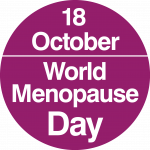
For the last in our World Menopause Day 2023 series, we are combining a paper and some recent case law, to think about some of the things that have been discussed this week through these blog posts.
Evidence-informed and evidence-based practice in social care is about research, but it is also informed by legislation, policy and case law, and this paper, combined with the two cases, illustrates that link, and enables us to think about how we approach the subject of menopause more generally for social care and social work practice.
The last paper in this series is another 2023 publication, this time from Gender, Work & Organisation. We are going back to the work environment for this one; this is where most of the research attention is paid, and because it also links to two recent Employment Tribunal (ET) judgements which have sparked some interesting discussions down in the woodland.
The subject being explored in this study is the gendered nature of menopause, which while receiving policy attention, still remains a stigmatized area. In this case Whiley and colleagues theorise that menopause in the workplace is problematized and pathogised in a male dominated employment setting. They then go on to hypothesise that this is experienced by women as perceiving themselves physically, emotionally, morally, and socially tainted, using the term ‘dirty femininity’ to describe attitudes to menopause in a patriarchal society (If I’m starting to lose some of you, stay with me, this is going somewhere and isn’t just a feminist rant).
ET judgements are not commonly considered when we think about case law in social work practice, but two cases are particularly relevant and worthy of a bit of consideration in this discussion. These are a 2023 Scottish case (Mrs K Anderson v Thistle Marine Ltd, 2023) and a 2021 appeal case (Ms M Rooney v Leicester City Council, 2021), both of which explored the claim that menopause is, or should be a protected characteristic.
Methods
Starting with the research paper, the researchers present the findings and analysis of a qualitive study using interpretative phenomenological analysis (IPA) methods.
For those wondering what IPA is, it is a method of psychological research that seeks to understand the individuals’ experience and examine how they make sense of it. In a lot of ways this type of approach sits well with social work as it is built around the contextual nature of a person’s individual and social lives and generally includes small sample sizes, with the ideal being recommended to be between 6-10 participants (Smith & Nizza, 2022; Smith et al, 2021).

IPA is “especially suitable for ‘complex, ambiguous and emotionally laden’ phenomena” (Smith & Osbourne, 2014; cited p.6).
In this study the experiences of six women with lived experience of menopause were recruited via ‘snowballing’ techniques (think recommend-a-friend type of sample recruitment). As with the limited number of other studies, and as discussed in yesterday’s blog, the participants in this sample were all white, cisgendered, employed women, who were all mothers. They all lived in the same economic area of the UK and occupied jobs in either office or service contexts. Diversity and intersectionality are highlighted as an area for further research, but the study itself does not make an attempt to explore these issues any further.
Semi-structured interviews were carried out, with an interview guide and prompts for the interviewers to follow, allowing the participant to lead the discussion within a pre-defined set of boundaries. All participants were invited to a pre-interview briefing to counteract potential interview anxiety, and attention was paid to ensuring participant consent was informed. Each interview was recorded and transcribed as part of the process of identifying themes in the experiences, including reviewing recordings and notation of emotional inflections. The team of four researchers read and compared themes through an iterative discussion that was recorded and ‘fine-tuned’ into a theoretical map that reflected the participant accounts and the interpretations of those accounts by the researchers.
Results
The researchers identified several themes common across the participants experience of, and attitudes/beliefs towards, their own menopause experiences. The paper identifies some of the primary themes (for example uncontrolled emotion and feeling inadequate at work, particularly with younger colleagues); However it was some of the secondary or subordinate themes that the paper focuses on, these include the impact of what they term ‘dirty femininity’, that being the physical experiences (hot flashes, sweats etc.), the moral experience (being seen as ‘less than a woman’ because you are no longer fertile) and the social experience (being a taboo topic in the workplace).
Conclusions
While framed within a feminist political ideology, the findings of the paper suggest that commonly women who are experiencing menopause symptoms feel isolated and excluded. In male dominated workplaces, such as the ones experienced by this sample group, they experienced feeling disadvantaged and feeling that they were viewed differently by their colleagues as they age. Evidence the researchers argue illustrates the “stigmatizing effect of menopause at work”. The paper concludes that the study extends understandings of women’s lived experiences of menopause at work as an example of complex gendered aging.

Research findings are part of the social work toolkit, alongside theory, legislation, guidance and caselaw.
Taking us back to the ET cases just briefly at this point, the findings in both cases sought to categorize menopause as a protected characteristic, one focusing on sex and the other seeking to define symptoms as a disability.
In the 2021 case, Ms Rooney, a social worker employed by a large Local Authority, successfully argued that she had a disability, and that this was as a result of the symptoms of menopause combined with symptoms of stress and anxiety.
“Employers should support their employees who are effected by menopause and may have a duty to make reasonable adjustments where Menopause symptoms are significant and may have a disability” (HR Commission, 2023)
In the more recent 2023 ruling, Mrs Anderson, an office manager working in the private sector, successfully argued unfair dismissal on the basis of s26 of the Equality Act 2010. It was accepted that references to the menopause in a workplace setting could amount to harassment on the grounds of sex as it is a condition that only affects women. The tribunal agreed.
Strengths & Limitations
The researchers in this study were clear about both their research question and the methods they chose to use to answer it and the methods they used are documented and described (with data available if anyone wishes to check the workings out). They detail the rationale for their decisions and choices, with an emphasis on lived experience being aligned with the principles of the research approach identified, and whilst the paper is steeped in feminist ideology (which might put off some), that doesn’t mean it doesn’t have something to say or contribute. The focus on exclusion is a theme we started yesterday and while connected, this paper focuses on woman in two work sectors, and does not really consider wider diversity factors in any detail which makes generalising the findings difficult.
The researchers are largely theorizing but are doing so with lived experience data which means that there is depth in the discussion. There is an attempt to reduce bias by following a structured methodology to make sense of the information (an approach that mirrors what a social worker does in the context of an in-depth assessment).

Lived experience data provides depth to the themes and discussions.
Implications for Practice
As a female dominated, aging workforce, these are real issues for many, and the experiences of feeling ‘tainted’ and ‘inadequate’ described in Whiley et al’s study, whilst perhaps articulated or expressed differently in social care settings, is very real for a significant proportion of the workforce – Ms Rooney’s ET judgement being just one example.
What has been interesting when looking at papers about the menopause this week is that lack of literature in the social care/social work disciplines. The evidence-base is patchy at best, and as highlighted in Wednesday’s blog, the types of interventions that might help in the workplace setting and beyond, and the wider conversations that need to happen about the menopause and the impact it can have on wellbeing are very welcome and very overdue!
Conflicts of Interest
None
Links:
Primary Paper:
Whiley, L.A., Wright, A., Stutterheim, S.E., & Grandy, G. (2023) “A part of being a woman, really”: Menopause at work as “dirty” femininity.” Gender, Work & Organisation, 30 (3), 897-916.
Other Links:
Human Rights Commission (2023) “Equality watchdog supports important Tribunal hearing on alleged menopause discrimination.” [Online]
Mrs K Anderson (or Farquharson) v Thistle Marine (Peterhead) Ltd and J D Clark: 4101775/2023
Smith, J.A., Flowers, P., & Larking, M (2021) Interpretative Phenomenological Analysis: Theory, Method & Research” London: Sage
Smith, J. A., & Nizza, I. E. (2022). What is interpretative phenomenological analysis? In J. A. Smith & I. E. Nizza, Essentials of interpretative phenomenological analysis (pp. 3–10). American Psychological Association.
Photo Credits:
- Photo by British Menopause Society
- Photo by Hal Gatewood on Unsplash
- Photo by Patrick Tomasso on Unsplash
- Photo by Nick Brunner on Unsplash
